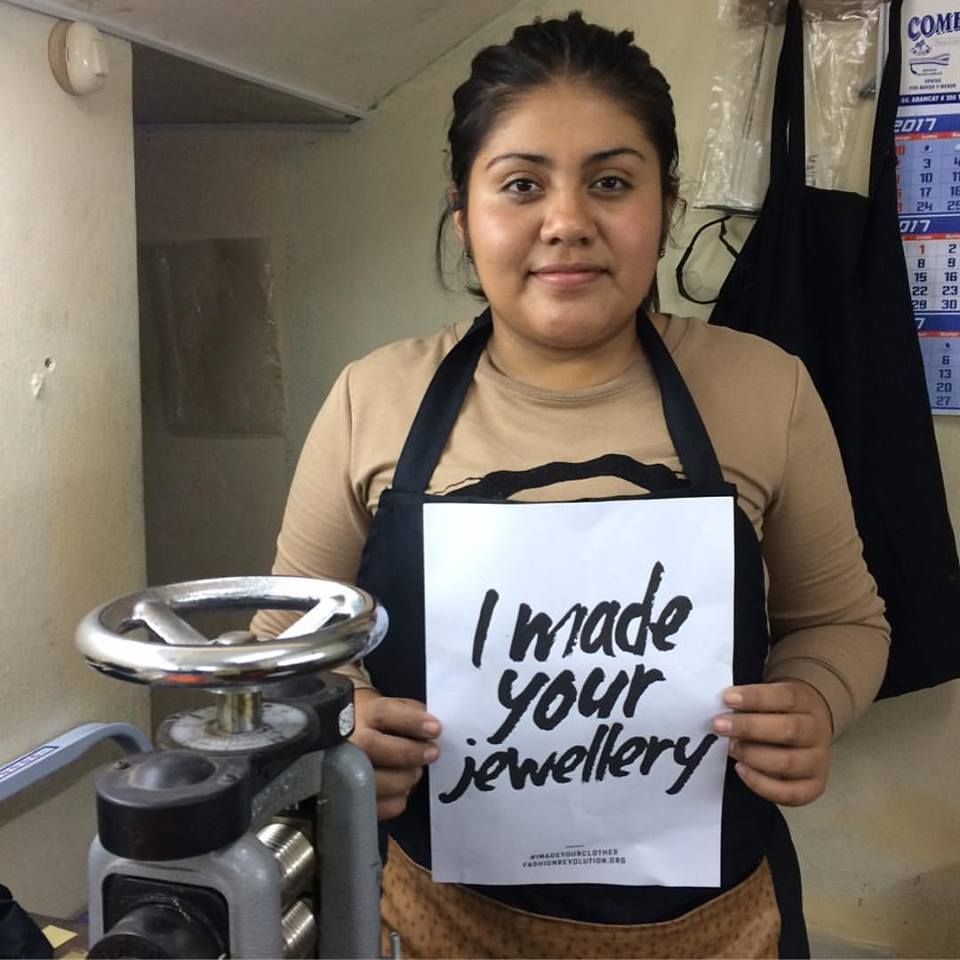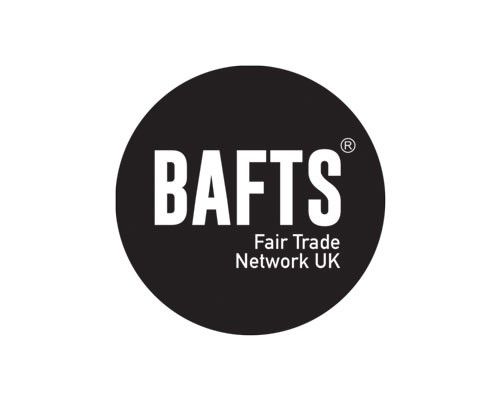Fair trade suppliers – helping the customer find quality and sustainable gifts they can trust
)
 |
Joanna Abena Fianu has worked in fair trade retail for two decades, first running her own business and now managing Greater Manchester's longest established fair trade shop, Justicia. She has been involved with BAFTS Fair Trade Network UK since 2011 and now deals with membership and monitoring. She has been running the eBay for Change programme since 2021 supporting fair trade and social enterprises to thrive in e-commerce. |
People buy from people. Creating and nurturing a personal connection is one of the reasons many customers prefer to shop with locally owned and run independents rather than big chain stores. When a customer comes into a store they want to feel at home, to feel the place reflects their own personality, aesthetic and, increasingly, ethics.
When choosing a present, we are giving a little bit of ourselves. We are reminding the recipient who we are, what our relationship is, as well as what we know they like and value. Shopping your values is no longer an optional extra, a “nice to have”, it’s at the heart of almost all our purchasing decisions. The products independent retailers stock help people tell their own stories through gifting. Ethical shopping, especially for gifts, is increasingly important to customers, who care deeply about the social and environmental impact of the products they buy. A unique gift that comes with its own story about who, and where it comes from and how it was made helps us share that personal connection even across continents.
But how can we trust the social and environmental claims of the products we buy from suppliers who we meet at events like Spring and Autumn Fair? What are some of the questions we need to be asking to make sure we’re not at risk of greenwashing?
-
Where was it made?
The supplier should be able to tell you more than just the name of a country. Ideally they have visited the factory, facility or workshop themselves. This is particularly important for products sourced in the majority world where legal protections for workers are not as good as in the UK or EU countries. Nobody wants their Christmas present to have been made by people struggling on poverty wages in poor conditions. Buying locally made products may reduce the carbon impact of transporting the item but the impact of other elements of production, including the social impact of good employment opportunities in low income countries is also an important factor
Automation has been great for lots of industries but people value a hand crafted gift. Whether it’s artisanal cheese, hand painted Christmas baubles, or a hand woven basket, we can feel the love and care that goes into an item that’s been crafted by skilled artisans. We want to honour the skills and experience of the makers, and to know that everyone involved was paid appropriately and has a decent life as a result. |
 |
-
How was it made?
Customers care about the environmental impact of everything they buy, and products made from recycled, upcycled and natural materials are increasingly popular. Many customers are worried about the waste of seasonal gifting opportunities like Christmas, so gifts that are thoughtfully made and built to last will always win. Customers prefer excellent design with high welfare standards over gifts that look and feel mass produced.
-
How will it get to me?
Single use plastic has become a pariah. Most suppliers have taken on board customer concerns about plastic packaging and have reduced the amount that gets to the buyer. Customers are also concerned about air miles so sometimes products arriving by ship are preferred. There is a tension here - if a product is to be packed into a shipping container and travel on the ocean for several weeks or months, the packaging material needs to hold up. I have heard too many stories of products arriving on UK shores damaged by the conditions of the journey, and strategic use of plastic packaging - particularly if it is reused at the end - is more sustainable than making items that need to be thrown away before they even reach the shop floor. Additionally small items like jewellery made by small groups of artisans can’t be produced in sufficient quantities to justify a shipping container. Insisting that everything arrives by boat rewards mass production to the detriment of the kind of unique hand made gifts we value.
Asking these questions will help independent stores find out whether their suppliers are really able to provide the gifts with purpose that their customers demand, and the answers will help customers navigate their way through sourcing ethical and sustainable products with confidence. But choosing to buy from fair trade suppliers who are members of BAFTS Fair Trade Network UK or the World Fair Trade Organization is a simple way to have confidence in a supplier’s claims to be socially and environmentally responsible.

What is a fair trade supplier?
Fair Trade is a trading partnership, based on dialogue, transparency and respect, that seeks greater equity in international trade. It contributes to sustainable development by offering better trading conditions to, and securing the rights of, marginalised producers and workers – especially in the global South.
 |
70% of British people bought a fair trade item in the last year*. It’s a trusted system to guarantee a product’s ethics. Every supplier who is a member of either BAFTS or WFTO has been independently assessed and demonstrated their commitment to the Ten Principles of Fair Trade - which cover things like fair payment, good working conditions, gender equity as well as respect for the environment, capacity building and tackling climate change. Short supply chains mean that all these organisations know exactly who has made the item you are buying. When you shake a supplier’s hand having placed an order at Spring Fair, the last hand they shook could well have been the artisan maker whose product you are buying. This personal connection makes fair trade suppliers unique - they won’t cancel contracts but work on a long term basis with their producer groups developing new designs, training in new skills and supporting them to build and grow their businesses. Give them a chance and they will delight in telling you about the people behind the products. |
Fair trade businesses are people and planet centred, sharing human stories to help you and your customers buy beautiful and useful hand crafted gifts.
* Source: Fairtrade Foundation www.fairtrade.org.uk/media-centre/news/fairtrade-fortnight-celebrating-britains-resilient-conscious-consumerism/

)
)
)
)
)
)
)
)
)
)
)
)
.jpg.png/fit-in/500x500/filters:no_upscale())
)
)
)
)
)
)
)
)
)
)
)
)
)
)
)
)
)
)
)
)
)
)
)
)
)
)
)